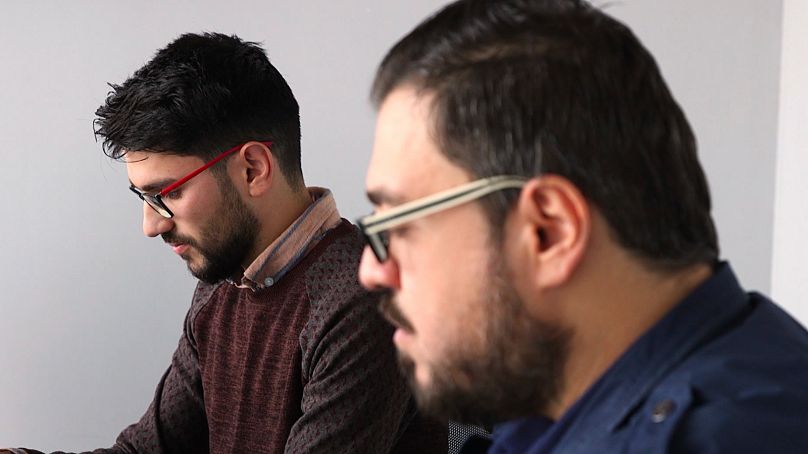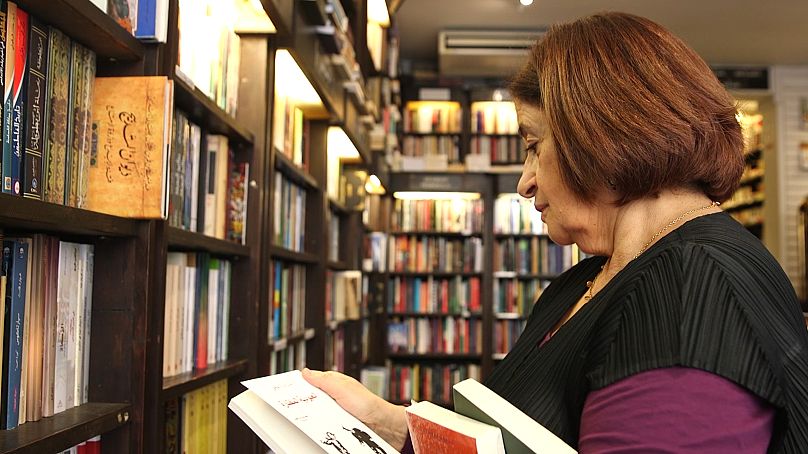Iraqi students from the University of Mosul are on a mission to share English content with their peers in Arabic.
Iraqi students from the University of Mosul are on a mission to share English content with their peers in Arabic.
 ADVERTISEMENT
ADVERTISEMENT
 ADVERTISEMENT
ADVERTISEMENT
When the so-called Islamic State invaded Mosul in 2014, there was a significant threat of losing much of the knowledge made available to the population.
With this, Iraqis secretly downloaded and shared countless Wikipedia pages.
A key problem remained, however, the pages were in English not Arabic, making them accessible to few.
Despite Arabic language being the fourth most spoken language by internet users, less than one percent of online content is published in the language.
So, after Mosul’s liberation in 2017 the group decided to share knowledge with those who had previously been deprived of it, due to conflict and repression.
“When some people try to search for something in Arabic, especially if that knowledge is stemmed from the English culture, it’s really hard,” says university student Momen Mohammad.
“In this project, we translated things that are really important and essential to our life: economics, anthropology, linguistics - things that we are studying now in our university."
The project is funded by Ideas Beyond Borders, a non-profit organization which seeks to empower people through knowledge.
Ameen Al-Jaleeli, the team leader at IBB, believes that facts help combat misinformation and allow critical thinking to become a weapon against radicalization.
"Knowledge, for me, is the most influential weapon against regressiveness, against narrow-mindedness and against radical thinking,” he says. “Getting this knowledge transferred into Arabic can hopefully make a difference in people’s minds.”
To date, the organization has managed to translate 11,000 scientific articles and add more than ten million words, to Arabic Wikipedia.
Translating Arabic to English also plays its part
Translation efforts extend both ways. Al Saqi Books in London has been translating Arabic literature into English in a bid to promote key works in the United Kingdom.
Salwa Gaspard, director of the store, established the capital city’s first Arabic bookshop in 1978, after fleeing the civil war in Lebanon.
Since that time, she has witnessed the demand for Arabic literature increase in her community.
“All they [non-Arabic speakers] knew about it, was the discoveries of Egypt, the Orientalism..and after 9/11, the terrorists.” says Gaspard. “So, they didn’t really have a feeling of the real people, of the real problems of the people in the Arab world. This is what the translated literature conveys to them. It used to be only the niche publishers who would translate Arabic fiction. Now everyone is doing it, Bloomsbury, Macmillan...”
Increasingly, Arab writers are receiving international attention. Such as Moroccan author, Leila Slimani, whose best-selling novel “Lullaby” is being adapted into a film.
Omani writer Jokha Al Harthi is another modern Arabic novelist gaining global notoriety, having won the prestigious 2019 Man Booker Prize with “Celestial Bodies”.
“When [Al Harthi’s] book won, we couldn’t believe it,” Gaspard exclaims. “It’s the first time an Arabic book wins a major prize in the UK. And I think it’s paving the way, to more Arabic translation, and more understanding of the real Arabic culture.”
SEEN ON SOCIAL MEDIA: LANGUAGE & LEARNING
Wafa from Tunisia shared a post showing her English studies. She decided to learn a new language in order to be able to access information from different parts of the world.













